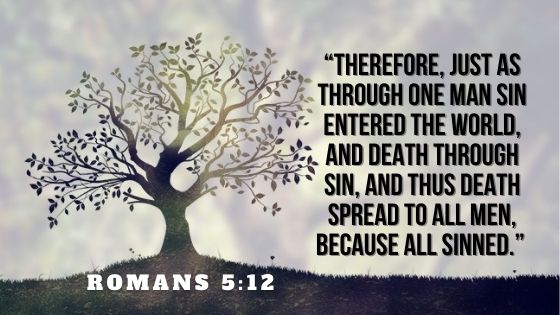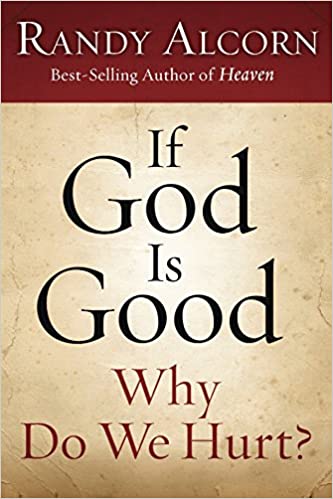We often hear people say that suffering is a result of God’s judgment. Who is not familiar with the Great Flood in Genesis 7? We read how God was grieved when He saw the extent of human wickedness on the earth. So, God decided to destroy every living thing that He has created (Genesis 6:5-7).
Can we then conclude that the sufferings people are going through are God’s punishment upon them? Doesn’t the Bible tell us that God is love (1 John 4:8)? That God’s love caused Him to sacrifice His only Son on the cross to save us (John 3:16)?
Yes; God is love but He is also just and righteous (Psalm 89:14).
God Heals a Man Born Blind
In John chapter 9, we read the story of a man who has been blind since birth. As they passed by where the man was, Jesus’ disciples asked Him “whose fault is it that he was born blind” (John 1:2).
Instead of seeing the man as an object of mercy, the disciples saw him as a subject for a theological discussion. The disciples had been trained as young men in the Mosaic law. They learned that “God does not leave the guilty unpunished” (Exodus 34:7, NIV). That “God punishes the children and their children for the sin of the parents to the third and fourth generation.”

Note: Some ancient rabbinic writings also speculated on the possibility of sinning in the womb or a preexistent state.
The disciples were sure that the man’s congenital blindness was caused by sin, either his own or his parents. But Jesus disagreed with them (John 9:3).
The Consequences of Sin
Adam’s disobedience brought sin and death into the world (Romans 5:12).
Adam and Eve sinned, and their offspring grew increasingly wicked and rebellious (Genesis 4:1-24). David committed adultery with Bathsheba and arranged the death of her husband (2 Samuel 11). David’s children grew up to cause him continual distress through their violence and selfishness.
Only in rare cases, after God’s longsuffering and mercy have been exhausted did He punish His sinful people. We read in 1 Samuel 2:12-36 how God dealt with the family of Eli. Also, God sent Judah and Israel into captivity (Hosea 11:1-8; Jeremiah 25:1-11) because of their idolatry and disobedience.
In the final analysis, all physical problems and human sufferings are the results of our fall in Adam. The consequences of sin that come upon sinners and their descendants are usually natural consequences rather than God’s divine judgment.
So, to blame a specific disability on a specific sin committed by a specific person is beyond any man’s authority. Only God knows why babies are born handicapped. And only God can turn them into something that will bring good to people and glory to His name.
God brought about suffering in the life of the blind man to reveal God’s work in him (John 9:3). This also happened so that he might become a blessing to the disciples and a blessing to those who would read John’s gospel.

Does God Carry Grudges?
The concern of the disciples about the man born blind sounds more like the superstitious fear of many in the world.
They think that God holds a grudge against them because they have offended Him in some way. They feel guilty for not acknowledging or confessing their sins. This often distorts their perception of God’s attitude toward them. And they expect Him to bring judgment into their lives at any moment.
Repentance, confession, and acceptance of God’s forgiveness are important ingredients for spiritual peace and good mental health. Inner turmoil caused by a guilty conscience can cause all sorts of fears about divine punishment.
God carries no grudges. If there should be a situation in which God needs to correct our life through suffering, He will let us know. God disciplines us as a godly father disciplines a child. Never will our heavenly Father corrects us vindictively. Rather, He does it in a kindly fashion (Hebrews 12:5-11).
God’s Intent for Suffering
Trials and sufferings are part of life and Christians are not exempt. Some might have expected life to be easy and smooth sailing after becoming followers of Christ. But such is not the case; it’s going to be a battle all the way!
Dealing with the trials of life is never easy. But knowing the promises of God’s love in His Word enables us to experience inner peace and joy.
Suffering is painful and perplexing but we know that God has a purpose for allowing us to experience them. God uses suffering for our spiritual development.
Final Thoughts
When we see other Christians suffering, it is never our place to presume God’s intent for them. There might be instances when people suffer as a consequence of their actions. But oftentimes in the Bible God uses sufferings to enact tremendous good rather than to punish.
God has an infinite capacity to effect goodness amid our pain and difficulty. We see this principle in the life of Joseph, Job, and of course, the Lord Jesus Himself.
Let us love and comfort our fellowmen in their suffering and trust that God will work all things out for their good (Romans 8:28).
Disclaimer: As an Amazon Associate, I may earn a commission when you use any links on this page to make a purchase, but at no additional cost to you.
Recommended Resource: If God Is Good: Why Do We Hurt? by Randy Alcorn
 Out of the deepest hurts of the human condition, Randy Alcorn brings into clear focus our most pressing questions about evil and suffering—including those that wrench our souls when we or someone we love is victimized by evil or assaulted by disease.
Out of the deepest hurts of the human condition, Randy Alcorn brings into clear focus our most pressing questions about evil and suffering—including those that wrench our souls when we or someone we love is victimized by evil or assaulted by disease.
He faces these questions with seasoned sensitivity, skillful insight, and a heart of compassion. He dodges none of the difficulties, and never lapses into platitudes, hand-wringing, or oversimplification.
On this troubling but inescapable topic, you’ll find frank acknowledgment of the inherent limitations that set humanity apart from the God who has none. There’s also generous, real encouragement that brings God nearer in our understanding when we need His comfort the most.
And amid our heavy doubts and swirling confusion on this topic, Randy Alcorn points us ultimately toward Jesus as “the only answer bigger than the questions.”

